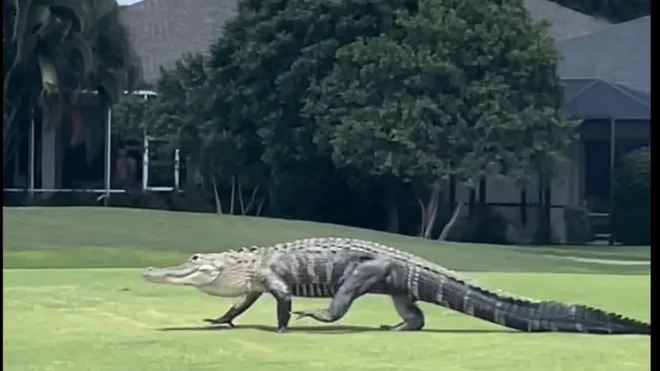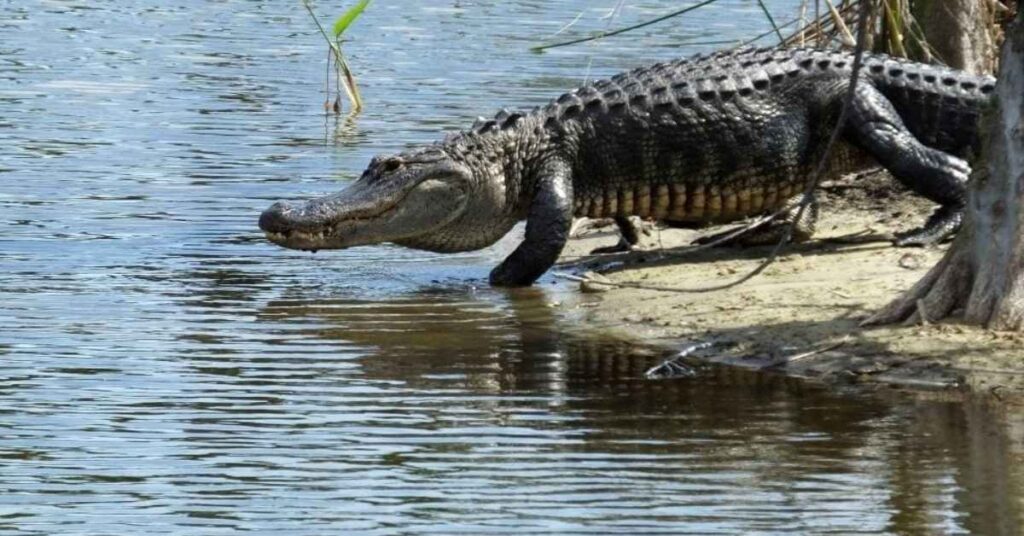When the weather warms up and the wetlands come alive, alligators become more active. This time of year is known as gator season, and it’s an important time for both locals and visitors to stay alert and prepared.
At Gatorsgross.com, we believe safety comes first. Whether you live near gator habitats or you’re just visiting, knowing how to stay safe can help prevent dangerous encounters.
What is Gator Season?
Gator season refers to the time when alligators are most active, especially during spring and summer. Warmer temperatures encourage them to move around more, search for food, and protect their nesting areas.
States like Florida, Louisiana, Georgia, Texas, and the Carolinas are known for gator sightings. If you’re near a lake, pond, river, or swamp, it’s always smart to stay cautious during this time.
Why Gator Safety Matters?

While alligators are not naturally aggressive toward humans, they can become dangerous if they feel threatened, hungry, or protective of their nests.
Most accidents happen when people:
- Get too close to take photos or videos.
- Feed the alligators, which is illegal in many areas.
- Allow pets or children to wander near water.
Staying alert and following basic safety rules can prevent serious accidents.
How to Stay Safe During Gator Season?
1. Keep a Safe Distance from Water Edges
Alligators often hide just beneath the water’s surface, making them hard to spot. Avoid standing, sitting, or fishing too close to the shoreline. A distance of at least 10 to 15 feet is recommended.
2. Never Feed Alligators
Feeding wild alligators makes them lose their natural fear of humans. This can lead to aggressive behavior and dangerous situations for both people and animals. Feeding gators is illegal in many states and should always be avoided.
3. Keep Pets on a Leash
Pets, especially dogs, can attract alligators because they resemble natural prey. Keep pets on a leash and away from water edges when walking near lakes, rivers, or swamps.
4. Always Supervise Children Near Water
Children are naturally curious and may approach the water without realizing the danger. Teach them about gator safety and always keep a close eye on them when outdoors.
5. Obey Warning Signs
Many parks and communities post warning signs in gator-prone areas. Never ignore these signs, even if you don’t see an alligator right away. Gators can stay hidden and quiet for long periods.
6. Avoid Swimming at Night
Alligators are most active at night and during early morning hours. Avoid swimming in natural bodies of water after dark, especially in areas known for gator activity.
7. Report Unusual Gator Sightings
If you see an alligator in a residential area, near schools, or wandering outside its usual habitat, report it to your local wildlife agency. Never attempt to handle or approach it yourself.
What Should You Do If You See a Gator?

Seeing a gator doesn’t always mean you’re in immediate danger, but you should always:
Report aggressive gators to local wildlife authorities.
Stay calm and back away slowly.
Give the gator space to retreat.
Frequently Asked Questions:
What months are considered gator season?
Gator season usually starts in April and runs through September, peaking in the warmest summer months.
Can alligators climb fences?
Alligators can climb short fences, especially if they are motivated by food or feel trapped. Property owners in gator areas should consider fences at least four feet high.
What should I do if an alligator charges me?
If an alligator charges, your best chance is to run away in a straight line as fast as possible. The myth about running in zigzags is false. Distance is your best protection.
How can I spot an alligator in the water?
Look for a log-like shape on the surface, especially two eyes and a snout sticking above the water. At night, their eyes reflect light, which can make them easier to spot.
Is it safe to kayak or boat during gator season?
It is generally safe if you follow precautions. Avoid dangling hands or feet in the water, stay away from known nesting sites, and avoid approaching any visible alligators.
Conclusion
Gator season is part of the natural rhythm of life in many southern states, but it doesn’t have to be dangerous. The key to staying safe is being aware, respectful, and cautious.
At Gatorsgross.com, we encourage everyone to enjoy the outdoors while practicing smart gator safety habits. Whether you’re fishing, hiking, or exploring — remember that knowledge and distance are your best tools for staying safe.













